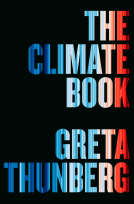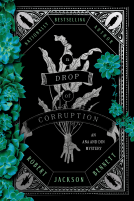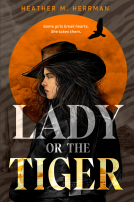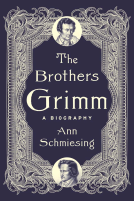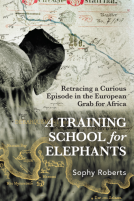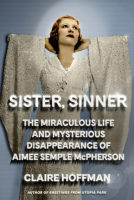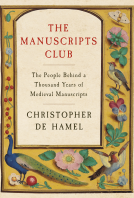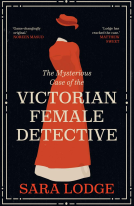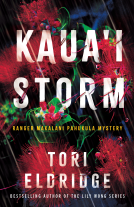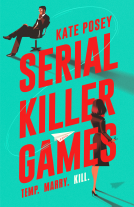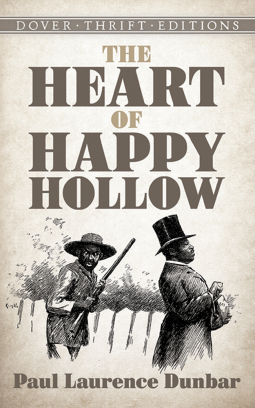
The Heart of Happy Hollow
by Paul Laurence Dunbar
This title was previously available on NetGalley and is now archived.
Send NetGalley books directly to your Kindle or Kindle app
1
To read on a Kindle or Kindle app, please add kindle@netgalley.com as an approved email address to receive files in your Amazon account. Click here for step-by-step instructions.
2
Also find your Kindle email address within your Amazon account, and enter it here.
Pub Date Jul 16 2014 | Archive Date Nov 06 2014
Description
Praised by The New York Times as "a true singer of the people — white or black," Paul Laurence Dunbar published this short story collection in 1904, two years before his untimely death. The son of freed slaves, Dunbar was best known for his dialect pieces as well as distinguished for his poetry and prose in standard English.
These sixteen tales of the daily lives of African Americans in the post–Civil War South examine the promise of northward migration, the horrors of lynching, and the complexity of the relationships between former slaves and masters. Highlights include "The Scapegoat," concerning a lawyer who falls prey to envious rivals; "The Mission of Mr. Scatters," the tale of a con man brought to justice; and "Old Abe's Conversion," a thought-provoking look at generational differences in religious practice.
Available Editions
| EDITION | Paperback |
| ISBN | 9780486496351 |
| PRICE | $3.50 (USD) |
Average rating from 6 members
Featured Reviews
 Mandy J, Reviewer
Mandy J, Reviewer
Paul Laurence Dunbar (1872-1906) was an African-American poet, novelist and playwright. I’d never heard of him before and was delighted to be offered this book of short stories from Netgalley and find out more about him. The son of former slaves, he wrote works that interpreted the African-American experience in the post-civil war south and in these 16 tales he writes about the daily life of the inhabitants of a small southern town, Sleepy Hollow. Much of his work is written in the Negro dialect associated with antebellum plantation life, and however historically correct that may be I found it tedious to read and it detracted from my enjoyment of the stories. Nevertheless, I did enjoy his analysis of the relationship between former slaves and their masters, and a short tale about a lynching was particularly chilling. For me this collection was more of a literary curiosity than anything, but I’m glad to have discovered it and don’t hesitate to recommend it.
 Librarian 105878
Librarian 105878
It is wonderful that Dover Publications is putting out this 'thrift edition' of a remarkable collection of short stories by Paul Laurence Dunbar.
Dunbar was the son of freed slaves and this collection of stories looks at the behavior of men, both white and black, in the post-Civil War era. At times, the reading is hard going as Dunbar writes, phonetically, the dialect of the Southern black man at the turn of the twentieth century. There are those readers who may accuse the author of stereotyping and insulting the reader by this, but Dunbar is simply capture the language of the time, place, and person.
I was particularly moved by a story which begins:
GORDON FAIRFAX’S LIBRARY held but three men, but the air was dense with clouds of smoke. The talk had drifted from one topic to another much as the smoke wreaths had puffed, floated, and thinned away. Then Handon Gay, who was an ambitious young reporter, spoke of a lynching story in a recent magazine, and the matter of punishment without trial put new life into the conversation.
“I should like to see a real lynching,” said Gay rather callously.
The story, "The Lynching of Jube Benson," is sure to strike the reader with its casual-ness of such a horrid topic, but also by the impact it has on the characters involved.
I was also struck by "The Scapegoat" -- the story that opens this collection and sets the tone for the sort of lessons the reader may learn, and "Cahoots," which was funny and touching.
Really, all the works in here were a surprise to me and delightful. I'll admit to a bias and say that I tend not to expect much from literature at the turn of the century, and someone who is the son of slaves -- well, I would expect a great mastery of words. Why? I can't say ... just an irrational expectation. So it is doubly delightful when I can be surprised in such a pleasant way. All throughout this book I was caught by surprise by a turn of a phrase or a reflection that spoke to the heart of being human ("The story flew like wildfire, there being three things in this world which interest all sorts and conditions of men alike: great wealth, great beauty, and great love.").
I knew nothing about Dunbar when I requested this book. I came to this from a historical point of view, initially, but have become converted to the power of Dunbar's writing and I'll be seeking out more of his works.
This book contains the following:
Note Foreword I - The Scapegoat II - One Christmas at Shiloh.
III - The Mission of Mr. Scatters IV - A Matter of Doctrine V - Old Abe’s Conversion VI - The Race Question VII - A Defender of the Faith VIII - Cahoots IX - The Promoter X - The Wisdom of Silence XI - The Triumph of Ol’ Mis’ Pease XII - The Lynching of Jube Benson XIII - Schwalliger’s Philanthropy XIV - The Interference of Patsy Ann XV - The Home-Coming of ’Rastus Smith XVI - The Boy and the Bayonet
Looking for a good book? The Heart of Happy Hollow by Paul Laurence Dunbar is a wonderful collection of stories, from a black perspective, of America just after the Civil War, and speaks to ALL races of men.
I received a digital copy of this book from the publisher, through Netgalley, in exchange for an honest review.
